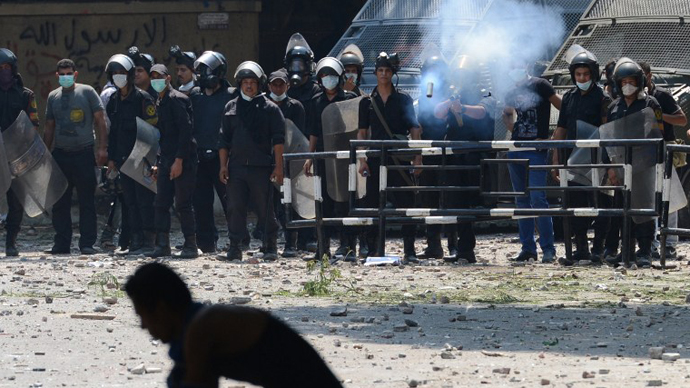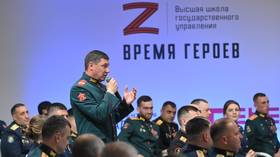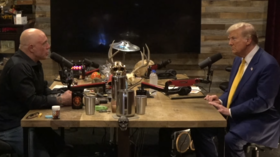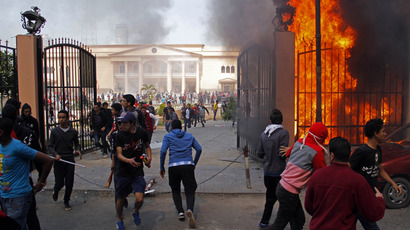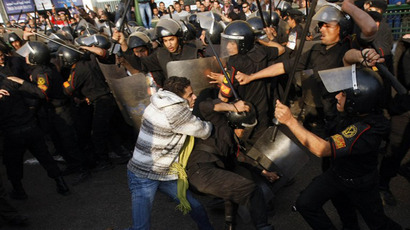Egypt's army doctors ‘operated without anesthetic’ on wounded protesters - leaked report
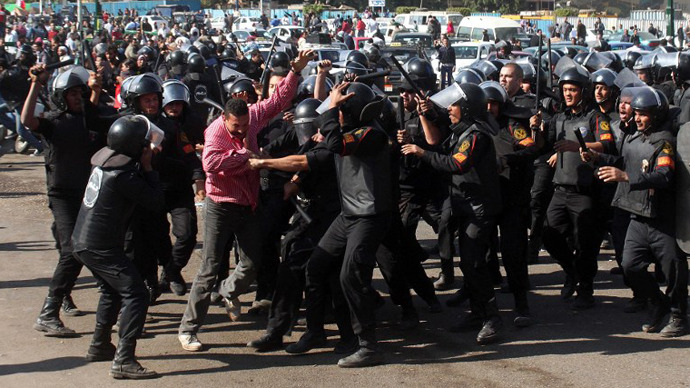
Egypt's senior army doctors were ordered to operate without anaesthetic on wounded protesters during uprisings against military rule, a new report reveals. It also claims top-ranking military officials were involved in torture, killing and abductions.
But instead of investigations, the generals get promotions.
Parts of a confidential presidential report allegedly turned over to Morsi in January has been leaked by the Guardian. It speaks about killings, torture and abductions of Egyptians by the military during the 2011 uprising that ousted President Hosni Mubarak as well as medical malpractice in May 2012.
The report contains testimony from doctors and protesters about the treatment of injured demonstrators at the Kobri el-Qoba military hospital in Cairo in May 2012 after the Abbsiya clashes with soldiers that left 2 dead and nearly 400 wounded. The leaked chapters claim Egypt's senior army doctors were ordered to operate without anaesthetic or sterilization on the wounded protesters and lock some of them in the basement.
"The findings that people were tortured in a military hospital and that senior military doctors ordered subordinates to operate without anaesthetic are more than just shocking," Karim Ennarah, a researcher on policing and criminal justice at the Egyptian Initiative for Personal Rights told the Guardian. "If this happened in the context of war, against prisoners of war, this would be a war crime."
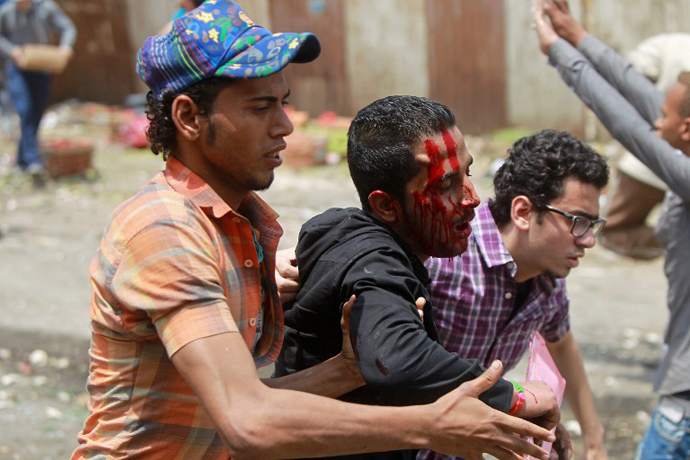
When speaking about the uprising of 2011, which ousted Hosni Mubarak, the report alleges Egypt's armed forces participated in forced disappearances, torture and killings across the country - including in Cairo's Egyptian Museum. More than 1,000 people, including many prisoners, reportedly went missing during the 18 days of the revolt. Scores ended up in Egypt's morgues, shot or with signs of torture.
"I can't overestimate the importance of this report," said Heba Morayef, the director of Human Rights Watch in Egypt. "Until today, there has been no official state acknowledgement of excessive force on the part of the police or military. The army always said they took the side of protesters and never fired a bullet against them. This report is the first time that there has been any official condemnation of the military's responsibility for torture, killing, or disappearances."
There was also a third party involved in clashes between the protesters and the military in May 2012, the report states. 'Baltigiya', or thugs were hired by the military to infiltrate, disrupt and harm protesters.
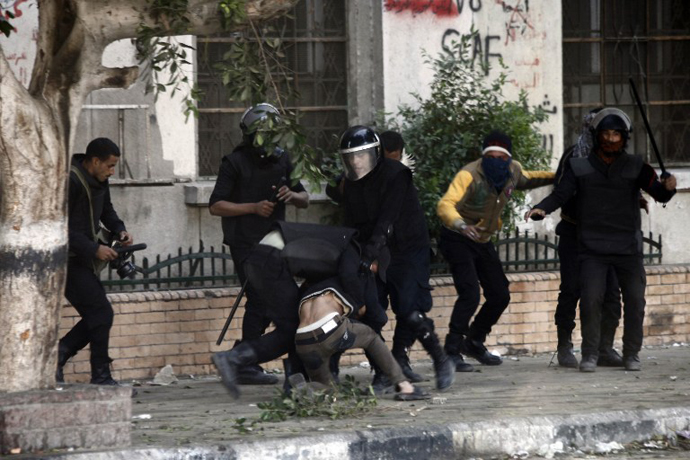
The report was written by a fact-finding committee set up in July 2012 by then-newly elected President Morsi. It is said to have been composed of judges, an assistant public prosecutor, an assistant interior minister, the head of National Security Egyptian General Intelligence Services, human rights lawyers, and relatives of victims.
“Releasing the fact-finding report would be the Egyptian government’s first acknowledgment of two years’ worth of police and military abuses,” Nadim Houry, Deputy Middle East Director at Human Rights Watch, told Daily News Egypt.
However, the report has not been published or even acknowledged
by Morsi. His spokesperson told the Guardian that the president had
not yet read it because it was still being investigated by the
prosecutor general. Meanwhile, instead of investigation, Egyptian
military command has received promotions.
Morsi has promoted three generals in a move to support the military and defuse rumors of them not getting along. They have all been awarded the honorific titles of lieutenant-general.
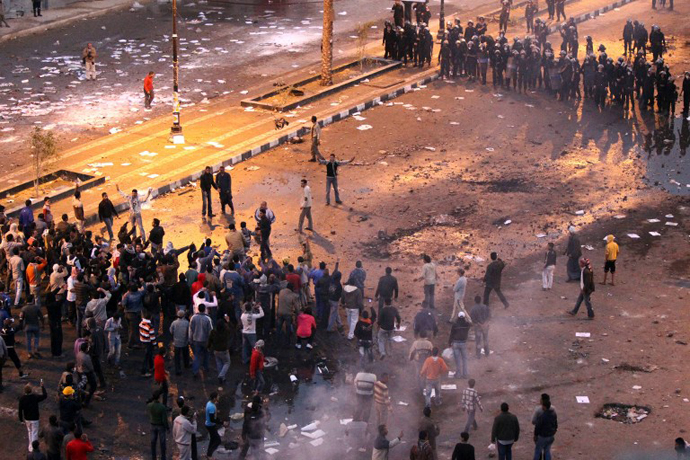
Morsi convened with the Supreme Council of Armed Forces (SCAF)
on Thursday, the meeting being a response to a "propaganda
campaign" that mars the image of the military, MEAN news agency
reports. Morsi has expressed his full support and appreciation for
the army's role in ensuring the country's security, warning he will
cut short any attempts to slander it.
"Any insult against the armed forces is an insult against all of us, and we reject any kind of insults. I announce this to the whole world: we appreciate the great role that the armed forces has been playing in maintaining the safety and security of this country," he said in a statement.
Morsi has stressed there is no tension between him and the army. The military, in their turn, claim to be innocent of allegations of mistreating the Egyptian public.
"I swear, by God, the armed forces did not kill nor order killings; it did not act treacherously, nor did it order treachery," the head of the armed forces, General Abdel Fattah Sisi, standing next to Morsi, said in a televised statement.
A resent high-level inquiry into the deaths of nearly 900 demonstrators during Egypt’s 2011 uprising concluded that the police were responsible for most of the killings and used rooftop snipers to shoot into crowds in Cairo’s Tahir Square. However, only 4 of the 36 trials of middle-ranking and low-level police officers accused of killing protesters near police stations during that period have resulted in prison sentences.
Human Rights Watch have demanded President Mohamed Morsi release the confidential document.
“More than two years after the uprising, we are seeing new cases of police torture and excessive force in policing protests,” Nadim Houry, from Human Rights Watch, told Daily News Egypt. “Without accountability and the political will for serious security reform, there can be little hope of ending the abuse.”
